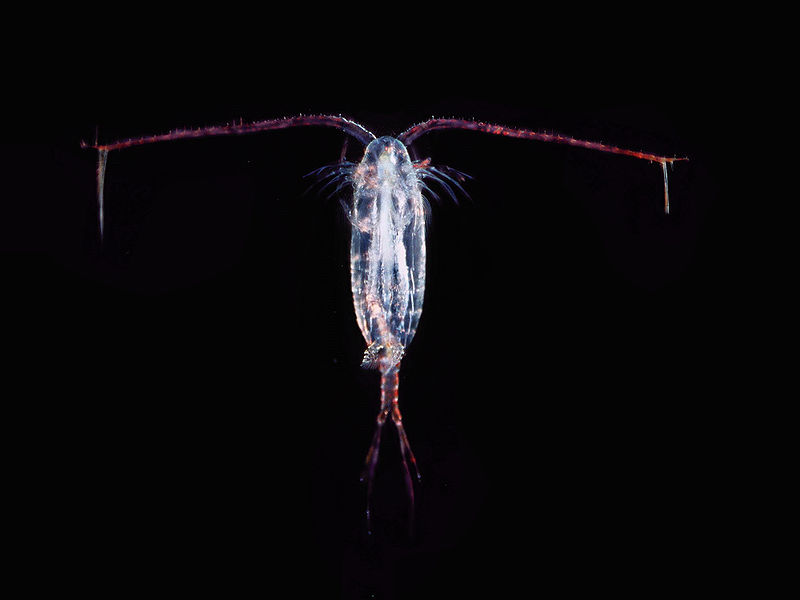
Photo by Uwe Kils, courtesy Wikimedia Commons.
A paper in press at PNAS finds that summer temperatures in the North Atlantic have risen higher than winter temperatures since 1353. The research involved constructing a climate record between 1353 and 2006 for the shallow inshore waters of the North East Atlantic, then comparing these records to the abundance of marine zooplankton.
The results showed that summer marine temperatures have increased nearly twice as much as winter temperatures since 1353. And that beginning in 1700 a new instability emerged, characterized by climate oscillations approximately every 5 to 65 years. These oscillations appear to be a recent phenomenon.
The warming summer waters also correlate to diminished zooplankton populations. Which means that even warmer summers are predicted to hammer zooplankton even harder in the coming decades. Fewer zooplankton will ricochet hard through an already-battered foodweb once dominated by overfished cod. From the abstract:
Enhanced summer-specific warming reduced the abundance of the copepod Calanus finmarchicus, a key food item of cod, and led to significantly lower projected abundances by 2040 than at present. The faster increase of summer marine temperatures has implications for climate projections and affects abundance, and thus biomass, near the base of the marine food web with potentially significant feedback effects for marine food security.
The paper: Nicholas A. Kamenos, North Atlantic summers have warmed more than winters since 1353, and the response of marine zooplankton. PNAS. DOI















